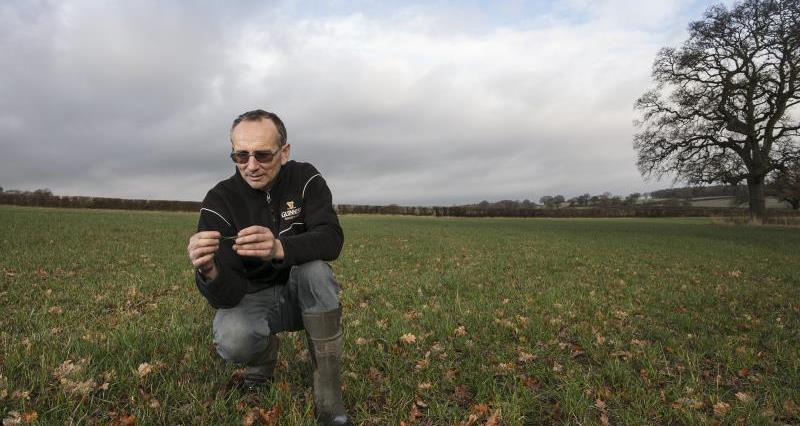He writes…
Aside from all the machinery and tech, there are two key tools on my farm; a trusty spade and the second, most importantly, is the soil; without it, there wouldn't be a farm.
My philosophy is to firstly understand the soils I work with (hence the reference to the spade). I’m a great advocate of digging soil pits and having a good look at what lies beneath to gain a better understanding of soil management needs. Successful management of what lies below the surface greatly impacts what we get out above.
Where I farm in the Blackdown Hills, Somerset, we have a heavy clay soil type which I strive to improve the workability of by increasing the organic matter content. In addition to spreading muck, I plant many cover crops, including Black Oats, Phacelia and Berclover to protect and enhance my soil’s health.
With heavy clay soils we could get an awful lot of run-off if the season is poor. The root mass of cover crops also improves the drainage and infiltration of our heavier soils, which in turn slows the flow of water to land drains and rivers by increasing permeation and retention of water in heavy downpours.
As an experiment a few years ago, we planted only half of a field with a cover crop, and left the other half bare. Not only was the soil condition much better in the cover cropped area of the field but we observed a significant increase in the number of earthworms too. Cover crops for me are a real ‘win-win’.
Depending on the condition of the soil and the nature of the season, we take a flexible, best-practice approach to our cultivation methods. Where we can, we adopt a min-till approach to avoid disturbing the soil as much as practically possible and direct drill if the season allows.
Four years ago our farm saw the introduction of a strip tillage machine which improves the soils structure and gives the benefits of conventional tillage whilst minimising soil disruption. In addition to this we take a pro-active approach to avoiding soil compaction, using wider tyres with reduced tyre pressures before we even start work on the land.
With unpredictable seasons and diverse soils, I have learnt that there is no set model to the management of soil health other than a journey of consistent monitoring, learning, and a good dose of trial and error.
Soils and landscapes vary vastly. What works on one piece of land may not work on the other. I believe it is the farmer’s management that is key. We, as farmers, know our land and its weak spots; therefore we must be the ones who take ownership of our soil to maintain it.
We only get one lot of soil on our farms, so poor management could have major, irreversible impacts for many years to come. We need to look to good practitioners and soil scientists to exchange their knowledge on the best management practices to reap the rewards which secure sustainable and responsible harvests for years to come.
Mark Pope chairs the NFU's Environment Forum and is also a trustee for FWAG South West. Over the course of the year his 700-acre farm plays host to many talks and visits. Last year, 2,500 schoolchildren attended one of many farm visits where there is an educational focus on farming and some entertaining talks on earthworms!
